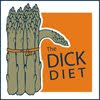In looking back at the past articles I realized I have neglected this most basic topic – a quick overview of the three critical macronutrients – protein, fat, and carbohydrates.
First we’ll look at protein. Protein is the structural basis for our body - our muscles, ligaments, tendons, organs, glands, nails, hair, vital fluids (blood, hormones, neurotransmitters), and enzymes are all protein based. It builds and repairs all these tissues and cells.
Proteins come from both animal (meat, fish, poultry, milk, cheese, eggs) and plant sources (whole grains, legumes, nuts, and seeds). When we eat protein we are actually consuming amino acids. Different proteins will have different amino acid compositions. Since our body is constantly building and repairing itself, it requires a constant supply of protein. Therefore I recommend protein is consumed with each meal.
The human body is an amazing instrument. There are thousands of things happening simultaneously, every second. To do everything the body does requires energy. The source of the body’s energy is food. Without food the body simply cannot continue to operate for a significant period of time. Both fats and carbohydrates provide energy. But they do it differently. Think of a fire. A carbohydrate is like a piece of paper. You put it in the paper and it burns up quickly and to keep the fire burning more paper is needed quickly. Fat is like a log. It burns smoothly, steady, and for a much longer period of time.
Carbohydrates are one of the more controversial elements of food. You will see heated debates illustrating the benefits of both low carbohydrate diets and high carbohydrate diets. The Standard American Diet (SAD) has become a high carbohydrate diet. The infamous 2000 calorie diet the food pyramid is based on calls for 60% of calories from carbohydrates. We all know how successful that has been! I’m a believer in the low carbohydrate diet.
Carbohydrates provide quick energy. They are converted into blood glucose which feeds our brain and red blood cells. Ever notice how irritable you get when hungry? The brain does not operate very well without nourishment. When most of us think carbohydrate we think grains. They are not the only choice. Vegetables and fruits contain carbohydrates and roughly 30% of protein converts to carbohydrates. In my book, these are the best sources of carbohydrate.
Remember this simple equation. To your body: CARBOHYDRATE = SUGAR! That’s all you need to know. If we consume lots of carbohydrates (like 60% or more of our diet) we consume lots of sugar. While sugar can be used for energy, excess sugar is converted into fat and stored. The bottom line - it is sugar that makes us fat!
Speaking of fat, it is fat that has been unjustly demonized. We have been suffering from a low fat craze for the last twenty years. Everybody (well not really everyone!) has been convinced that fat is bad for us and should be avoided at all costs. So what has happened? We got fatter! Obesity rates are going through the roof.
So, we need fats. They make up cell membranes and hormones, are required for absorption of the fat soluble vitamins (A, D, E, and K), are critical for infant brain development and the female reproductive system, and provide energy.
There are two types of fats – saturated and unsaturated (further defined as monounsaturated and polyunsaturated). Saturated fats are solid while unsaturated fats are liquid at room temperature. Unsaturated fats are much more sensitive to light and heat. When heated they oxidize forming “free radicals” that damage cells and are linked to a variety of diseases including cancer and heart disease. Therefore, particularly when cooking we want to use saturated fats such as butter or coconut oil. And, for salad dressing or other room temperature uses olive oil is best.
Another fat we hear of are trans fatty acids. These are formed during the process of hydrogenation. Polyunsaturated oils, usually corn, soybean, safflower, or canola, are heated to high temperatures and injected with hydrogen atoms. During the heating process the nutrients in the oils are destroyed, the oils become solid and have oxidized. Trans fats have been linked to many ailments, including cancer, heart disease, and reproductive problems. Trans fats are commonly found in commercial baked goods, cookies, crackers, margarines, vegetable shortenings, and processed dairy products.
Bernard Rosen, PhD is a Nutrition Consultant and Educator. He works with individuals, groups, and at corporations to create individualized nutrition and wellness programs. He has offices in Thiensville and Glendale, WI. To learn more or to schedule an appointment, e-mail at bernie@brwellness.com, call (262) 389-9907 or go to www.brwellness.com.
.jpg)



No comments:
Post a Comment